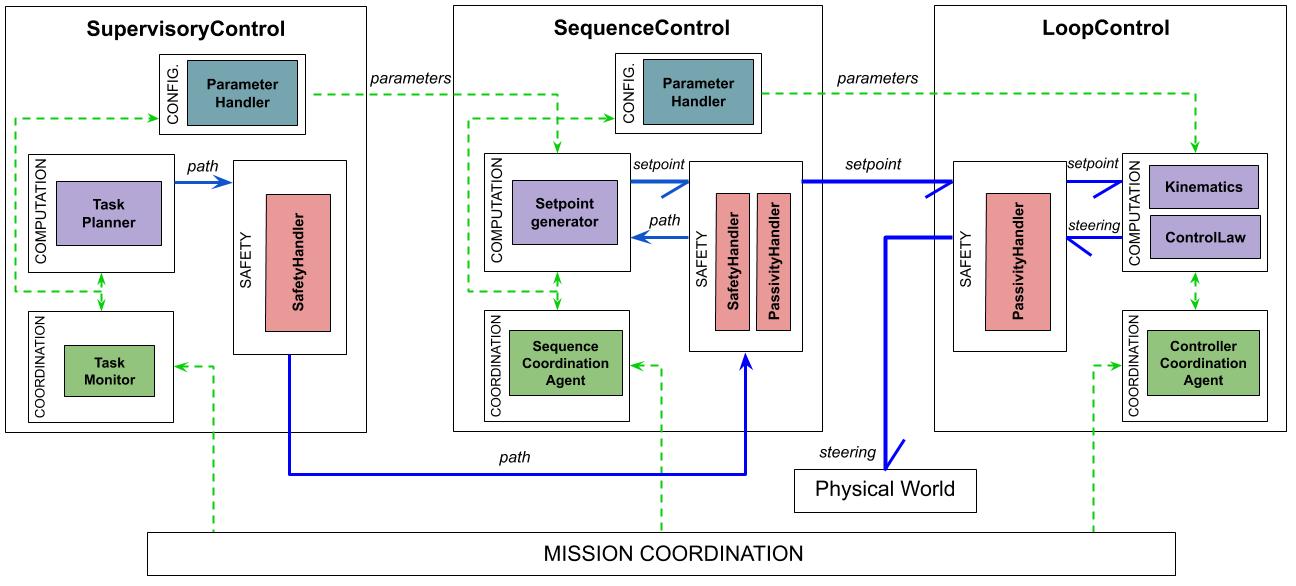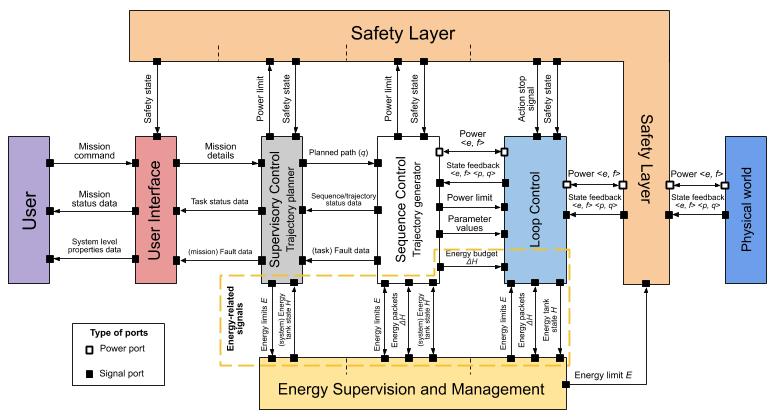
Robotic systems are subject to physical interaction with the environment, which leads to tight requirements on safety and reliability. This also applies to the software controlling the physical system as there will be an exchange of energy between the software part and the physical elements. Such energy flow determines stability, performance and safety properties. Energy-awareness in cyber-physical systems (CPS) implies acknowledging the presence of energetic information flowing back and forth between software and the physical world, and overseeing its conformance with physical laws. Moreover, energy-awareness also implies using the energetic information to enhance system behaviour and make decisions to accomplish tasks effectively and safely.

- Predictable system-level energetic behaviour providing passivity and thus stability and safety properties of component-based, networked systems.
- Responsive task execution by using information on the energetic state of the system at the skill and service levels, resulting in higher predictability of system performance.
- Information on the energetic state and energy usage of the system can be used to provide the human operator with valuable information on the energy that is consumed during task execution and how that compares to expected values.
This EGCS project is funded via Cascaded funding by the RobMoSys - Composable Models and Software for Robotic Systems - EU H2020 project 732410, via Call 2 for ITP - Integrated Technical Projects. We work together with TNO, also via the iBotics collaboration, and VIRO.
